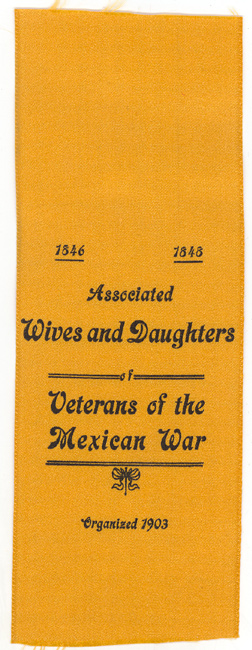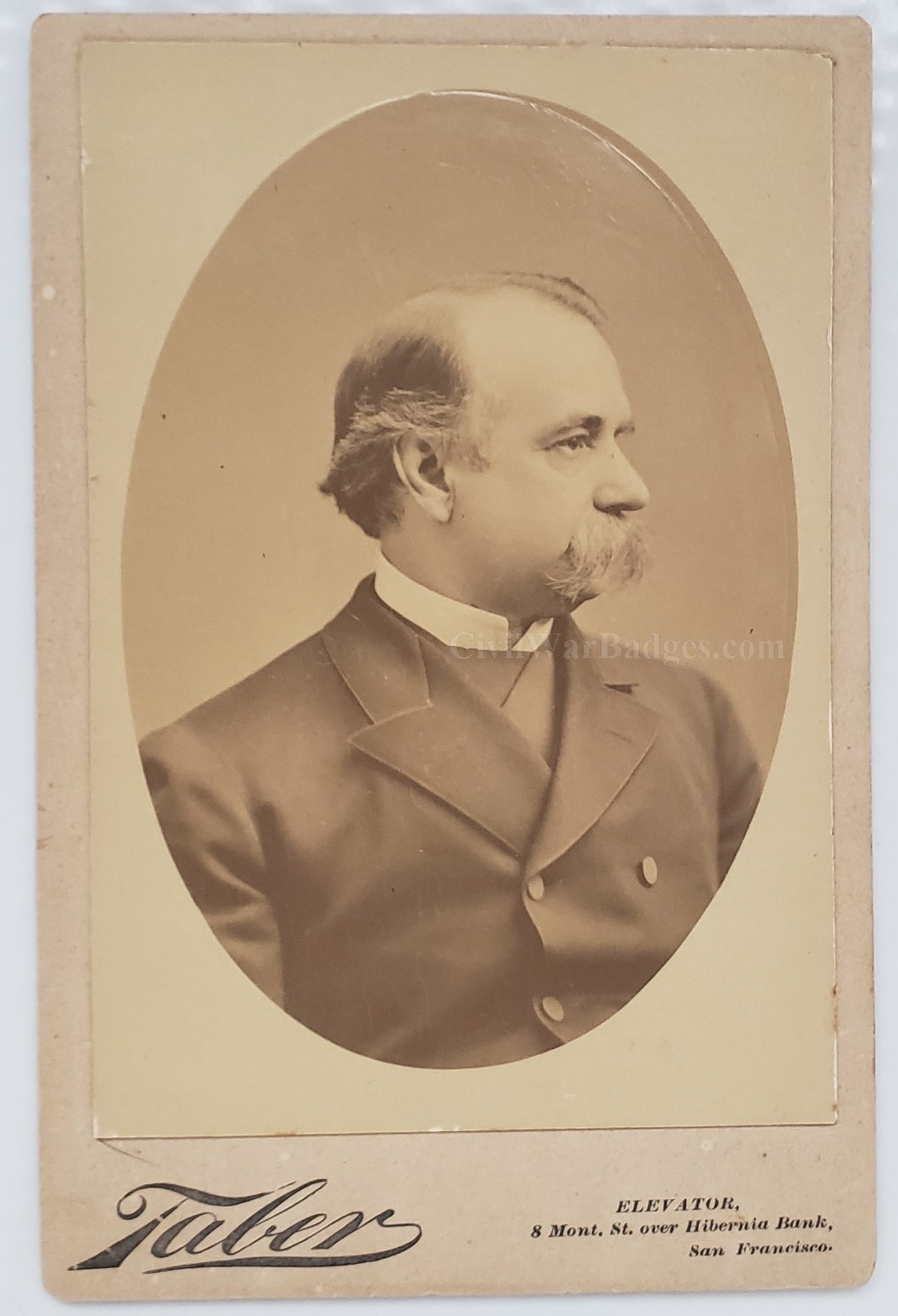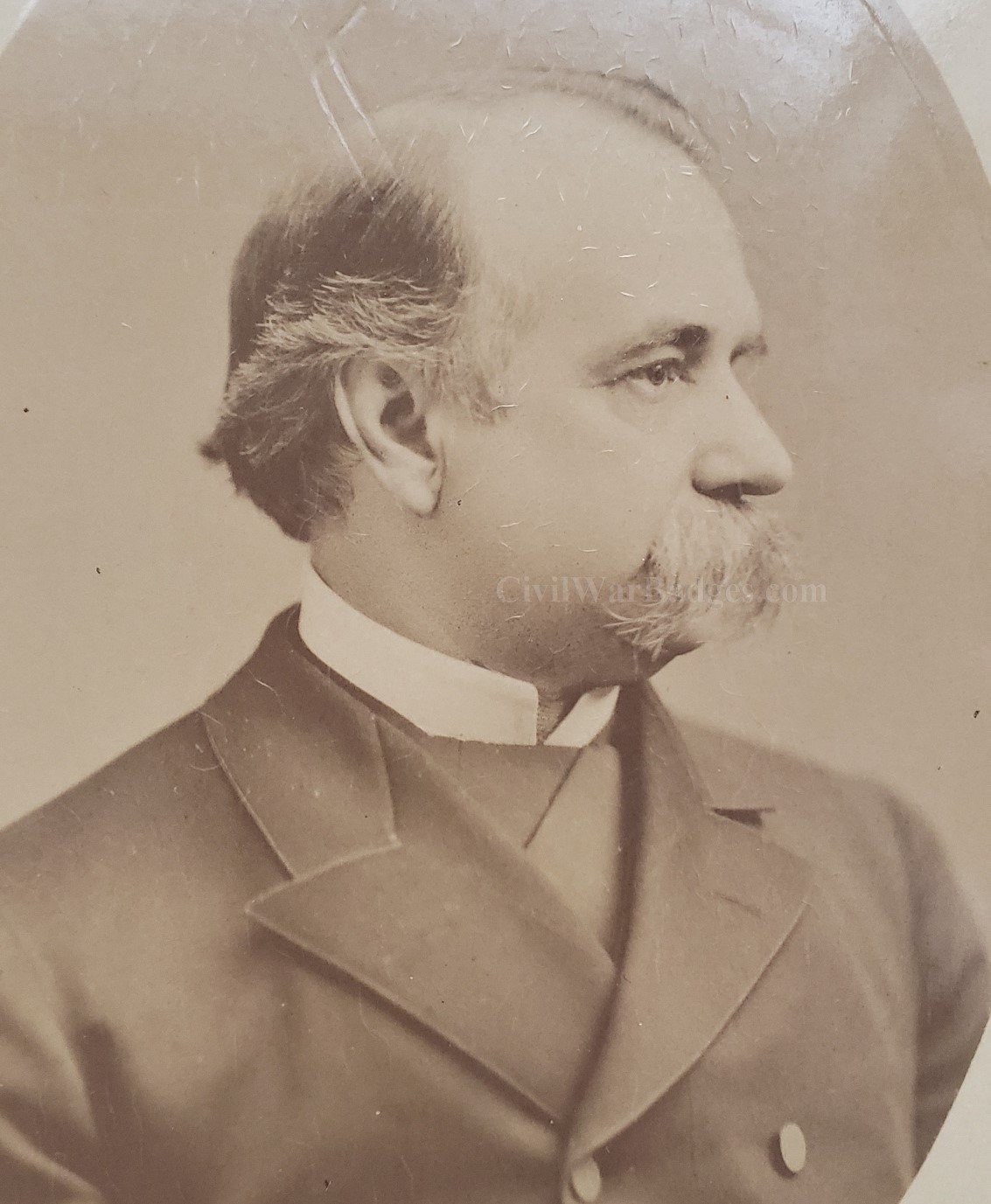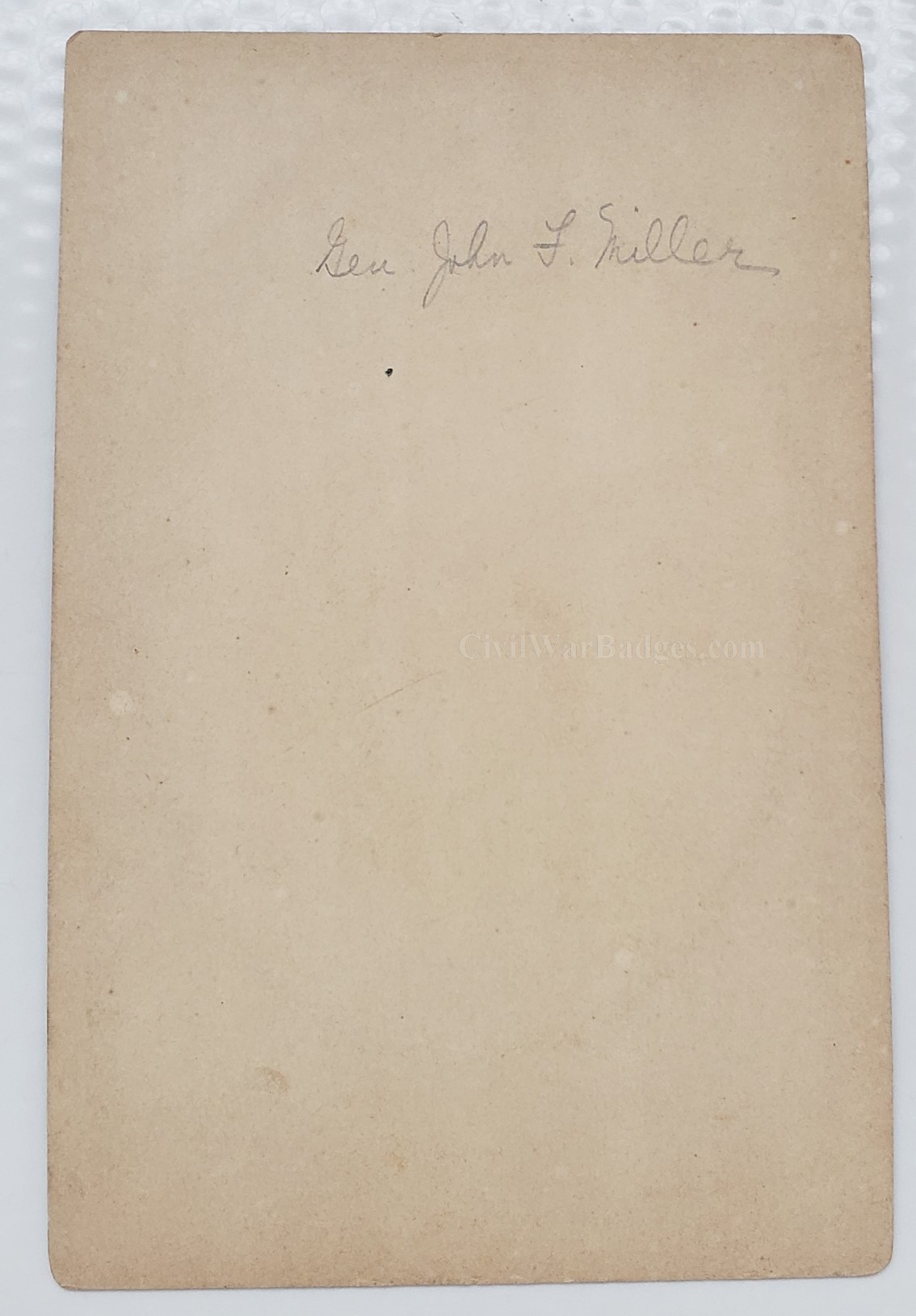CIVIL WAR GENERAL JOHN F. MILLER ~ COLONEL 28TH INDIANA INFANTRY
Item #: CWB12330
Click on an image to enlarge
CABINET CARD PHOTO OF GEN. JOHN F. MILLER
Miller, John F., brigadier-general, was born in Union county Ind. Nov. 21, 1831. He removed with his parents to South Bend in 1833, was prepared for college and was graduated in 1852 at the New York state law-school. After practicing a short time in South Bend he was forced to go west for his health and for three years resided in California. On returning to Indiana he took an active part in the Republican campaign of 1856 and was a member of the state senate in 1860, but resigned to enter the army. After serving as aide to Gov. Morton he recruited and became colonel of the 28th Ind. volunteers and joined Gen. Rousseau in Kentucky, Oct. 1O, 1861. He succeeded in Feb., 1862, to the command of a brigade in Buell's Army of the Ohio, and his regiment served in Kirk's brigade in the battle of Shiloh. He subsequently commanded first the military barracks and then the city of Nashville, Tenn., and in Sept. 1862, was given command at Nashville of the 7th brigade, Negley's 8th division. He distinguished himself particularly at the battle of Stone's river, where at the head of his brigade he charged across the river and drove Breckenridge from his position, and in the charge he received a bullet wound in the neck. At Liberty gap, June 25, 1863, he made another gallant charge and received a wound which destroyed the sight of his right eye. He was promoted brigadier-general of volunteers, Jan. 5, 1864 and he commanded a division of 8,000 men on the left at the battle of Nashville in the following December. For gallant and meritorious services in this battle he was brevetted major-general of volunteers on March 13, 1865, and during the summer of that year he commanded the district of Mobile. He resigned Sept. 25, 1865, refused a commission as colonel in the regular army and moved to San Francisco, where he practiced law and for four years was collector of the port. He was then an organizer and became president of the Alaska commercial fur company and amassed a large fortune. He was a Republican presidential elector in 1872, 1876, 1880, a member of the state constitutional convention in 1879, and in Jan., 1881, was elected to the United States senate, where he served until his death. He died in Washington, D. C., March 8, 1886.
Miller, John F., brigadier-general, was born in Union county Ind. Nov. 21, 1831. He removed with his parents to South Bend in 1833, was prepared for college and was graduated in 1852 at the New York state law-school. After practicing a short time in South Bend he was forced to go west for his health and for three years resided in California. On returning to Indiana he took an active part in the Republican campaign of 1856 and was a member of the state senate in 1860, but resigned to enter the army. After serving as aide to Gov. Morton he recruited and became colonel of the 28th Ind. volunteers and joined Gen. Rousseau in Kentucky, Oct. 1O, 1861. He succeeded in Feb., 1862, to the command of a brigade in Buell's Army of the Ohio, and his regiment served in Kirk's brigade in the battle of Shiloh. He subsequently commanded first the military barracks and then the city of Nashville, Tenn., and in Sept. 1862, was given command at Nashville of the 7th brigade, Negley's 8th division. He distinguished himself particularly at the battle of Stone's river, where at the head of his brigade he charged across the river and drove Breckenridge from his position, and in the charge he received a bullet wound in the neck. At Liberty gap, June 25, 1863, he made another gallant charge and received a wound which destroyed the sight of his right eye. He was promoted brigadier-general of volunteers, Jan. 5, 1864 and he commanded a division of 8,000 men on the left at the battle of Nashville in the following December. For gallant and meritorious services in this battle he was brevetted major-general of volunteers on March 13, 1865, and during the summer of that year he commanded the district of Mobile. He resigned Sept. 25, 1865, refused a commission as colonel in the regular army and moved to San Francisco, where he practiced law and for four years was collector of the port. He was then an organizer and became president of the Alaska commercial fur company and amassed a large fortune. He was a Republican presidential elector in 1872, 1876, 1880, a member of the state constitutional convention in 1879, and in Jan., 1881, was elected to the United States senate, where he served until his death. He died in Washington, D. C., March 8, 1886.
Shipping Weight:
0.5 lb
Item # CWB12330
$95.00 USD




